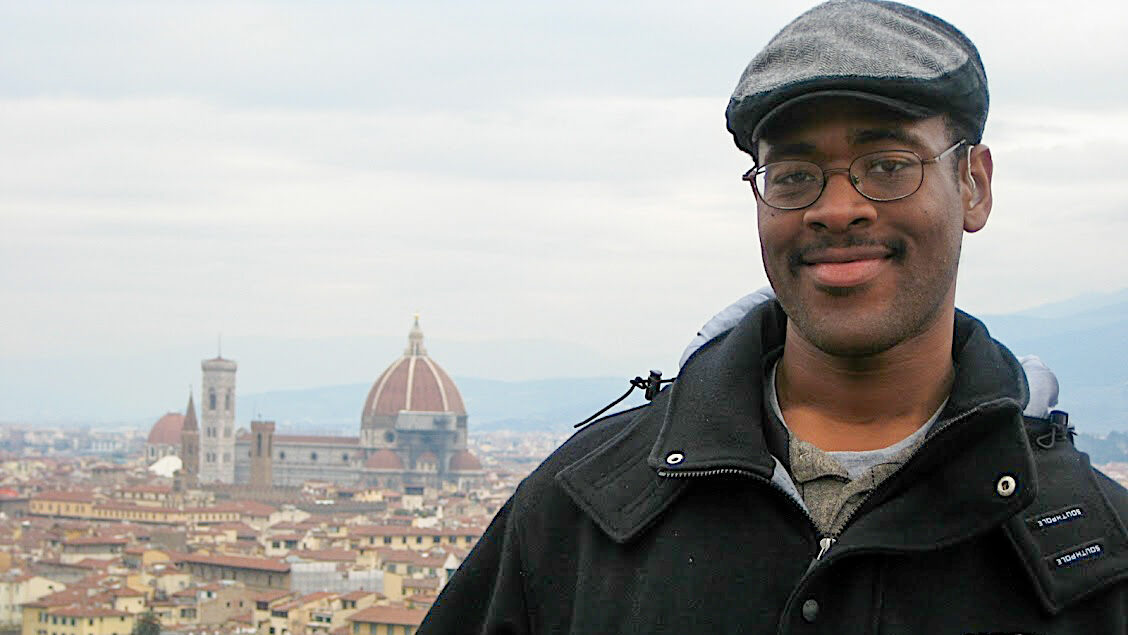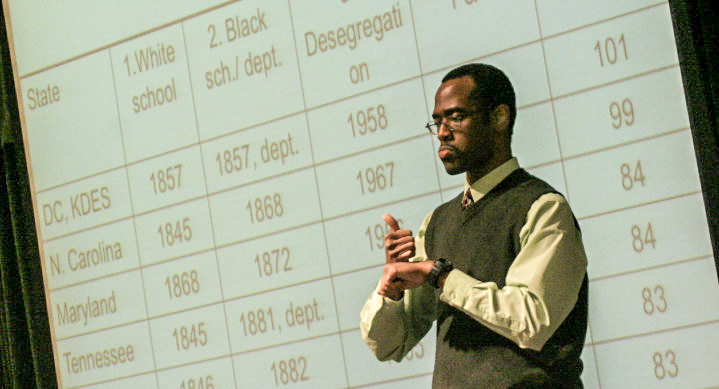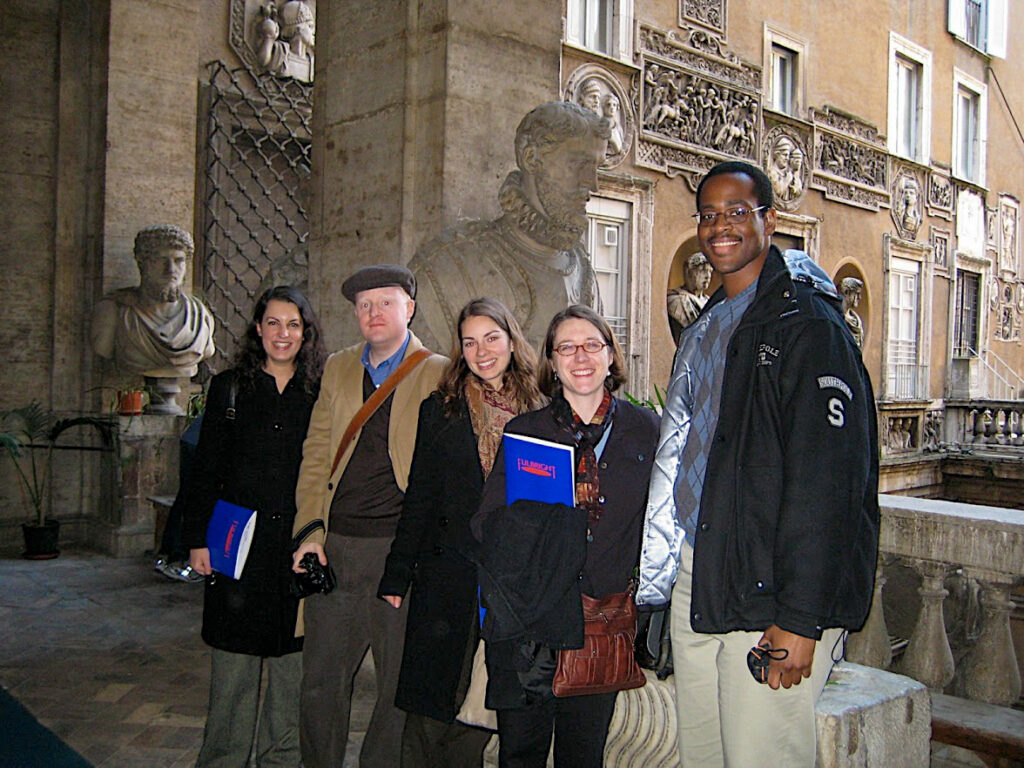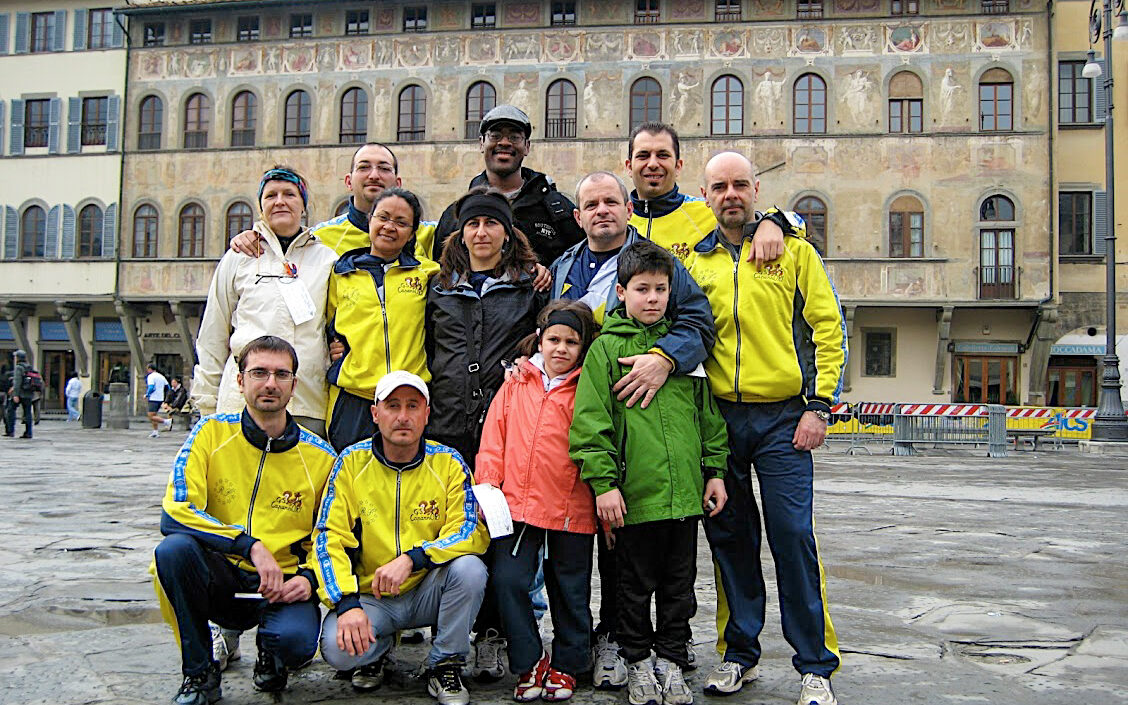Signing Black in America, Leading in Deaf Studies
Dr. Joseph Hill
Deaf Educator, Expert in Black American Sign Language, Advocate for Diversity and Inclusion
Fulbright U.S. Student to Italy

Dr. Joseph Hill is a leading authority on an African American variety of American Sign Language and an ardent advocate for education, culture, and language of Black Deaf people. He is a sociolinguist in American Sign Language, Deaf Studies, and Interpreting known for The Black ASL Project, unprecedented empirical research describing the linguistic features American Sign Language (ASL) used by African American signers. Currently, he is a professor at the National Technical Institute for the Deaf (NTID) at Rochester Institute of Technology (RIT) where he is also the Associate Director of the NTID Research Center on Culture and Language and an assistant dean in NTID Academic Affairs in collaboration with NTID Office of Diversity and Inclusion.
A Fulbright experience in Italy during his graduate studies was important to his understanding of attitudes and ideologies about the cultural and linguistic context of communications in deaf education.
Raised in a family of deaf and hard-of-hearing siblings, a hard-of-hearing mother, and a hearing father, Hill recounts stories of a childhood going to mainstream schools where speaking, rather than signing, dominated. His parents had not learned sign language and so did not teach their children to sign. Once he began learning to sign as a ten-year-old, he began to notice cultural variations in different types of sign language.
While studying computer systems at Miami University in Oxford, Ohio, he became interested in exploring deaf education further. He says that learning about types of signing “increased my curiosity and lead me to graduate school, because I wanted to learn more about ASL as a language. I wanted to learn about its linguistic structure. I wanted to learn about how it was different than other languages.”
He enrolled in a Linguistics graduate program at Gallaudet University, earning a National Science Foundation Graduate Student Fellowship as part of his master’s. Continuing at Gallaudet for his doctoral research, he also received a Fulbright U.S. Student Program award to Italy, to investigate the way that culture influences languages.
On the podcast series Ripple Effects: Travelers with Disabilities Abroad, produced by Mobility International USA for the State Department’s National Clearinghouse on Disability and Exchange, Hill said his time in Italy has informed his further research and subsequent interactions with colleagues and students.
“My Fulbright studies related to language attitudes in Italy within deaf education, which means I was investigating the administrators, parents and teachers, and their point of view in the use of sign language with deaf children,” said Hill. He explored this sociocultural context through his Fulbright research, involving children from first grade through high school at six schools in four cities. People involved in his study were generally supportive of Italian Sign Language as part of deaf children’s education, but support varied based on their knowledge of deaf culture, connection with the deaf community, understanding of sign language linguistic structure, and resistance to the ideology of sign language as a lesser language.
As a Black American, he also learned what it was like to interact with people from another culture, who often assumed he was from Africa. He became a keen observer of language and cultural perspectives that influenced attitudes toward both race and disability.
Informed by his Fulbright experience, he completed his doctoral dissertation, Language Attitudes in the American Deaf Community, exploring how the forms and features of signing vary among social groups with respect to generation, age of language acquisition, and race.
As part of The Black ASL Project, he co-authored The Hidden Treasure of Black ASL: Its History and Structure, the first sociohistorical and linguistic study of the African American Deaf community. The team analyzed historical records and recollections from individuals who had attended historically segregated schools for Black Deaf children across the Southern United States. The project was featured in a documentary called Signing Black in America as a powerful affirmation for Black Deaf people and a significant scholarly contribution.
In 2020, Hill spoke at a Fulbright discussion on “Disability Rights, Inclusion, and the International Legacy of the ADA.” Hill discussed intersectionality, describing how different identities overlap to affect people’s lives. “Of course, disability is one of those identities,” said Hill, through an ASL interpreter, “along with race, gender, and sexuality.” Ensuring equity for people with intersectional identities is at the heart of his current role as Assistant Dean for Faculty Recruitment and Retention in collaboration with the NTID Office of Diversity and Inclusion. He is tasked with supporting NTID’s goals to diversify the faculty, to ensure that the faculty search and hiring is inclusive and equitable, and to identify what keeps the faculty satisfied in terms of career development and scholarship support.
In June, 2021 Hill was selected as Deaf Role Model of the Month by Deaf Unity, a nonprofit that prepares deaf people for success. Sharing his perspective on the obstacles he has overcome, he wrote, “My journey as an academic is not easy, and there have been several times I thought about leaving academia altogether, but something keeps me on the path…. I think I am still going because Black Deaf role models are still not as visible, and I want to change that.”



